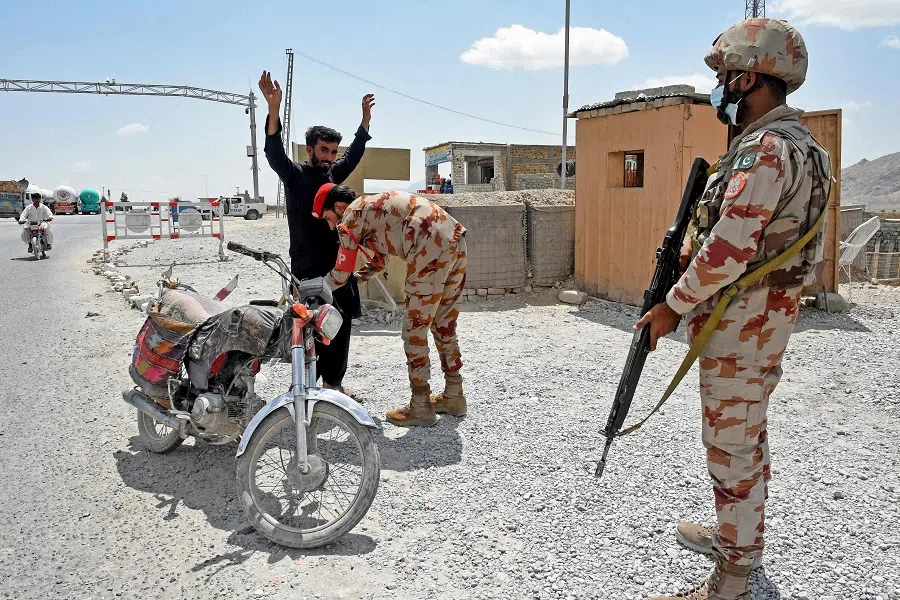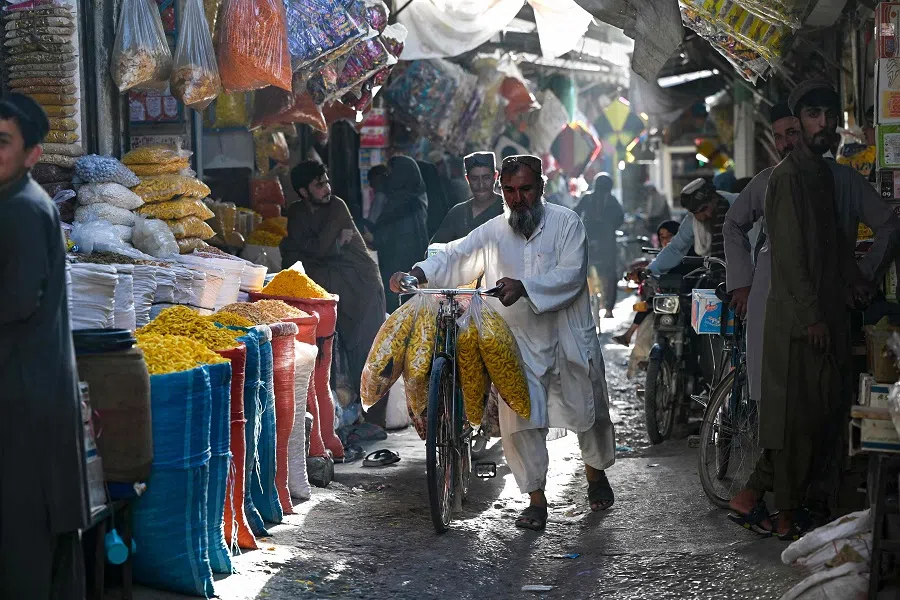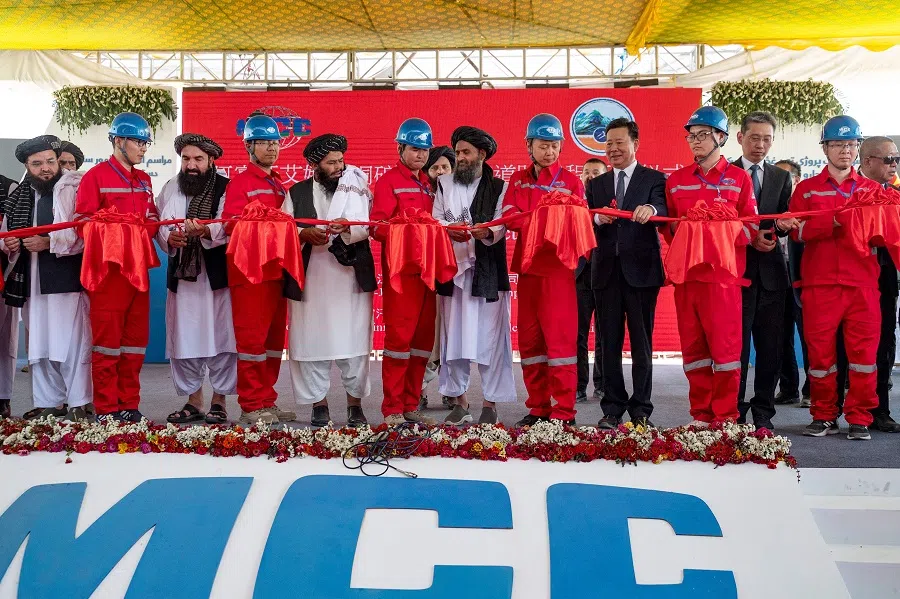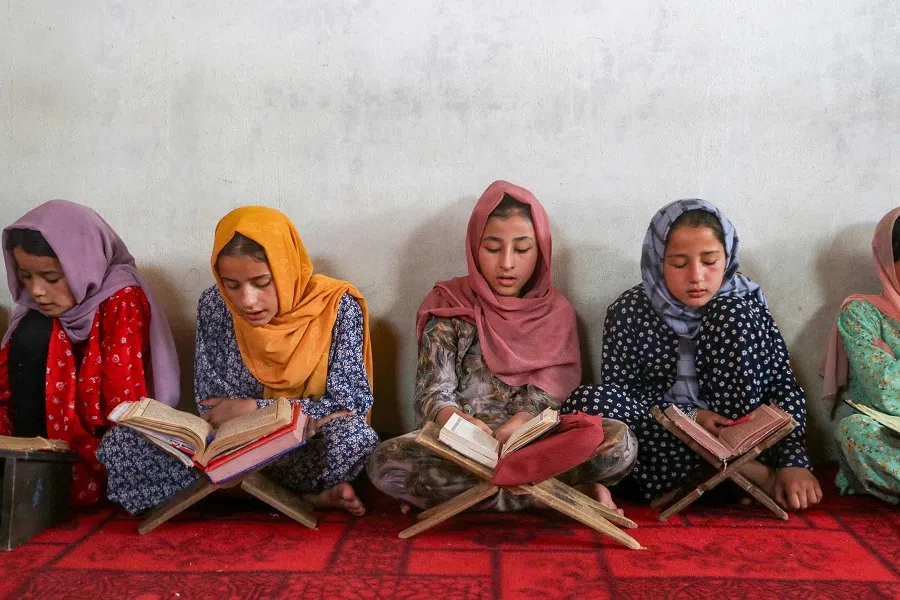Can China avoid the mistakes of past powers in Afghanistan?
As China deepens its presence in Afghanistan, it must navigate the risks of stepping into the void left by Western powers. History teaches that in Afghanistan, ambition must be tempered with caution, and success is never guaranteed, warns US academic John Calabrese.

The international community has long grappled with the question of how to address the power vacuum in Afghanistan following the US withdrawal in 2021. China’s recognition of Bilal Karimi, a former Taliban spokesman, as an official envoy to Beijing last December highlighted China’s strategic calculus in filling the void left by the West.
Nevertheless, three years since the Taliban reclaimed power, Afghanistan remains a nation in turmoil. The Taliban’s return to power has emboldened various extremist groups. Indeed, Afghanistan continues to be the main source of instability in the surrounding region. This underscores the complexities of China’s engagement and reveals the delicate balance China must strike to avoid the traps that have ensnared other powers in Afghanistan.
China’s interests: connectivity, security and resources
China’s engagement with Afghanistan is driven by three key interests: connectivity, security and access to resources. Despite the Taliban’s ascension to power, these priorities have remained constant for Beijing.
China views a strong Taliban, however distasteful, as the best bulwark against extremist groups that could threaten its interests, particularly in Xinjiang. Moreover, Afghanistan’s rich deposits of minerals, oil, and gas present lucrative opportunities for Chinese companies, especially as Beijing seeks to secure resources for its economy.
As Russia’s economy falters under the weight of sanctions and war expenses, Central Asian states are increasingly turning to Beijing for economic and security support.
The shadow of the US withdrawal from Afghanistan and its broader retrenchment from Central Asia has further emboldened China. As Russia’s economy falters under the weight of sanctions and war expenses, Central Asian states are increasingly turning to Beijing for economic and security support.
The Taliban, keen on rebuilding Afghanistan’s economy, has also welcomed Chinese investments, recognising Beijing’s economic strength as a potential lifeline amidst Western sanctions.
The rise of extremism
However, Afghanistan’s security landscape remains precarious. The Taliban’s inability to establish a functional governance framework has created a power vacuum that extremist groups have eagerly exploited.

According to a quarterly report by UN secretary-general António Guterres on the situation in Afghanistan issued in June: “Between 1 February and 13 May, the United Nations recorded 2,505 security-related incidents, a 55 per cent increase compared with the same period in 2023.” Armed resistance groups such as the National Resistance Front (NRF) and Afghanistan Freedom Front (AFF) have ramped up their attacks in Kabul and other cities.
A July report by the United Nations Security Council highlights increased concerns among UN member states about the growing terrorist threat from Afghanistan, specifically from Islamic State-Khorasan (ISIS-K) and Tehrik-e Taliban Pakistan (TTP). Additionally, the report offers compelling insights into persistent links between Al-Qaeda and the Taliban, referring to these ties as “strong and symbiotic”.
ISIS-K has proved to be stubbornly resilient, creative and destructive. While ISIS-K’s attacks within Afghanistan have diminished, the group has increasingly planned and conducted more lethal operations targeting high-profile figures overseas, including in Turkey, Iran and Russia, not to mention a string of foiled plots in Europe and Canada.
In March, General Michael Kurilla, the commander of the US Central Command, testified to Congress on the growing terrorist threat emanating from Afghanistan, warning that “ISIS-Khorasan retains the capability and the will” to attack the US and its allies in Europe in as little as six months. Vladimir Voronkov, UN undersecretary-general for counter-terrorism, was recently quoted as saying, “ISIL-K has improved its financial and logistical capabilities in the past six months …”
Persistent border tensions between Afghanistan and Pakistan could jeopardise China’s ambitions to expand the China-Pakistan Economic Corridor (CPEC) into Afghanistan.
A delicate situation: China-Afghanistan-Pakistan
For neighbouring Pakistan, the repercussions of the turmoil in Afghanistan have been severe. The porous 2,670-kilometre border with Afghanistan has become a conduit for increased militant activity, with Pakistan witnessing a surge in cross-border terrorism.
A recent decline in attacks by ISIS-K in Afghanistan has corresponded with a slight uptick in violence in Pakistan. In early August, heavily armed militants launched coordinated attacks on three Pakistan military posts near the border with Afghanistan.

The presence of groups like TTP on Afghan soil has strained relations between Kabul and Islamabad, complicating efforts to stabilise the region. Numerous border skirmishes have led to closures of border crossings. In March, Pakistan launched air strikes within Afghan territory in response to attacks that killed seven soldiers in North Waziristan, Khyber Pakhtunkhwa.
Persistent border tensions between Afghanistan and Pakistan could jeopardise China’s ambitions to expand the China-Pakistan Economic Corridor (CPEC) into Afghanistan. Moreover, China’s proactive engagement with the Taliban, which is occurring as Pakistan’s frustration with the Taliban continues to grow, could ultimately lead to friction between Beijing and Islamabad.
China, itself, has felt the impact of Afghanistan’s instability and the threat posed by numerous extremist outfits that have found a home there. Last year, ISIS-K’s media machine issued a 48-minute video that declared the liberation of Uighurs as “one of our greatest objectives”.
Chinese workers and investments have increasingly become targets of attacks by various militant groups. In Pakistan, a suicide attack that killed five Chinese engineers is alleged to have been planned in Afghanistan.
Incidents such as this underscore the security risks that Chinese investments face in Afghanistan, particularly as ISIS-K’s profile continues to rise. Chinese officials have reportedly pressed Pakistan to allow private Chinese security firms to safeguard their projects in the country, but Pakistani authorities have declined.
Indeed, Beijing’s ambitions extend beyond Afghanistan, encompassing South Asia and Central Asia.

A year ago in May, China and Pakistan agreed to expand the CPEC to include Afghanistan, signalling Beijing’s intention to anchor Afghanistan within its regional ambitions. Taliban Deputy Prime Minister Maulawi Abdul Kabir affirmed Afghanistan’s support for the Belt and Road Initiative (BRI) and “practical cooperation” with China. Acting Commerce Minister Haji Nooruddin Azizi later echoed this sentiment, stating that the Taliban plans to formally join the BRI. However, security concerns, political turmoil in Pakistan, and China’s economic slowdown have dampened these prospects.
China sees value in Afghanistan’s resources
Despite these challenges, China remains committed to expanding its influence in Afghanistan. The BRI, through CPEC and other regional projects, offers Beijing a strategic pathway to integrate Afghanistan into its broader economic and security framework. Indeed, Beijing’s ambitions extend beyond Afghanistan, encompassing South Asia and Central Asia.
In May of last year, President Xi Jinping met with all five Central Asian leaders at the third China-Central Asia Summit in Xi’an, where he pledged a “new blueprint” for regional development through trade, energy, infrastructure and security initiatives. Importantly, Xi offered the five presidents in attendance assistance on domestic-security and national-defence matters, in which they had traditionally sought support from Russia.
Against the backdrop of these broader ambitions, with the Taliban engaging in negotiations with other neighbours to ease their isolation, and the race for critical minerals intensifying, China surely recognises the value of securing a stake in Afghanistan’s resources. Accordingly, over the past year and a half, Chinese companies have been laying that groundwork.
In January 2023, the Xinjiang Central Asia Petroleum and Gas Company (CAPEIC), a subsidiary of the state-owned China National Petroleum Company (CNPC), signed a US$540 million oil and gas deal. Last July in Kabul, Fan China Afghan Mining Processing and Trading Company announced an investment of US$350 million in various sectors ranging from construction to health to energy. Three months later, officials from the China-based Gochin Company reportedly proposed investing as much as US$10 billion in various infrastructure projects if it were awarded a lithium mining contract.
... China is concerned that the Taliban’s incomplete control of Afghanistan and the presence of an ISIS-K-affiliated group in the north of the country could pose security risks.

According to an analysis by the Financial Times and the Centre for Information Resilience, a UK-based non-profit group, Chinese companies have secured at least four of the 15 “large-scale” mining licenses awarded by the Taliban since August 2023. The Mes Aynak copper mine has also seen renewed interest from Chinese companies after 16 years of delays due to security concerns.
On 24 July, Taliban officials, alongside Chinese businessmen and diplomats, participated in a ribbon-cutting ceremony to mark the start of road construction leading to the mining site. But it is worth noting that the road is not scheduled for completion until next year, and Taliban officials have said it would likely be at least two years until the first copper is extracted.
Mindful of security risks
In the meantime, security is paramount. Yet Russia’s ability to address Afghanistan’s security issues is limited, and the Tajik-China border with Afghanistan is vulnerable to the spread of destabilising forces.
Owing to the escalating pressures of strategic competition with China and Russia, counterterrorism has significantly dropped in importance in US policy. It is therefore not surprising that China is concerned that the Taliban’s incomplete control of Afghanistan and the presence of an ISIS-K-affiliated group in the north of the country could pose security risks.
Afghanistan’s current trajectory is alarmingly reminiscent of the pre-9/11 era.
Even as Chinese companies have pushed ahead in securing contracts and proposing investments, Chinese officials have been urging their Afghan counterparts to take more decisive action against terrorism.
Meeting with Taliban Acting Foreign Minister Amir Khan Muttaqi in April 2023, then Chinese Foreign Minister Qin Gang emphasised the need for Afghanistan to fulfill its commitment to fighting terrorism and guaranteeing the safety of Chinese personnel and institutions.
However, there are lingering questions about the Taliban’s capability and resolve to suppress the activities of the various violent extremist outfits operating within Afghanistan. Though the Taliban’s eagerness and need for the revenue, jobs and infrastructure that these projects could bring are growing, Chinese companies, mindful of the risks, will not proceed hastily to implement them.
Can China avoid the trap?
Afghanistan’s current trajectory is alarmingly reminiscent of the pre-9/11 era. Before the September 11 attacks in 2001, Taliban-ruled Afghanistan functioned as a refuge for Al-Qaeda and other extremist groups. In the lead-up to September 11, the Taliban-ruled Afghanistan provided a haven for Al Qaeda and other radical entities. With international attention diverted and the Taliban’s tacit support, these groups grew unchecked, culminating in a catastrophic attack. Now, we see these concerning patterns re-emerging.

While poverty is worsening under the Taliban, which has tightened its grip domestically — including dismissing men without beards from security forces and banning women’s voices and bare faces in public — Afghanistan is becoming an even more permissive space for terrorist groups than it was prior to the US withdrawal.
China’s engagement in Afghanistan represents a calculated risk. While the potential rewards are significant, the pitfalls are equally daunting. Beijing’s recognition of a Taliban envoy and proposed investments in Afghanistan’s resource sector are steps in this direction. However, China’s success will depend on its ability to navigate the complex dynamics of Afghan politics and security.
As China deepens its presence in Afghanistan, it will need to be mindful of the risks inherent in filling the gap left by Western powers. The lessons of history are stark: in Afghanistan, ambition must be tempered with caution, and success is never certain.
In its pursuit of influence and resources, China will have to navigate the same hazards that have ensnared others to avoid turning its engagement into a costly misadventure. The international community lacks a strategy, clear goals, and any urgency to address Afghanistan’s challenges. But does China?





